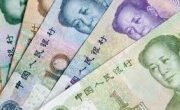
About C. H. Kwan
C. H. Kwan is Senior Fellow at the Nomura Institute of Capital Markets Research. He specializes in economic reforms in the PRC, the yen bloc and regional integration in Asia.Why is the PRC showing signs of overheating despite slowing economic growth?

The People’s Republic of China’s (PRC) economy has shown signs of overheating despite a sharp slowdown in economic growth, suggesting that, constrained by the supply of labor, its potential growth rate might have fallen significantly from its past level. With the priorities of the PRC’s authorities shifting from raising economic growth to curbing inflation, they are expected to change their stance on macroeconomic policy, including monetary policy, from easing to tightening. As a result, the PRC economy is likely to slow in 2014.
Can internationalization of the renminbi succeed where internationalization of the yen failed?

Since the second half of the 1990s, Japan has tried to promote the use of the yen as an international currency but has made little progress so far. Now, following in Japan’s footsteps, the People’s Republic of China (PRC) is promoting the internationalization of the renminbi. It would do well to consider why Japan’s attempt at internationalizing the yen has failed. Until the Asian financial crisis in the second half of the 1990s, Japan was reluctant to promote the internationalization of the yen, fearing that capital flows could destabilize the economy and render monetary policy ineffective, a problem widely considered to be the major cost for a country promoting the international use of its currency.


Search
Subscribe / Connect to Asia Pathways
Subjects
- Accelerating Progress in Gender Equality
- Addressing Remaining Poverty and Reducing Inequality
- Agriculture and natural resources
- Capacity development
- Climate change
- Economics
- Education
- Energy
- Environment
- Finance and Innovation
- Finance sector development
- Gender
- Globalization and Economic Stability
- Governance and public sector management
- Health
- Industry and trade
- Information and Communications Technology
- Infrastructure
- Making Cities More Livable
- Miscellaneous
- Population
- Poverty
- Private sector development
- Regional cooperation and integration
- Sanitation
- Social development and protection
- Strengthening Governance and Institutional Capacity
- Subjects
- Transport
- Uncategorized
- Urban development
- Video Blog
- Water
Recent Posts
- From Crisis to Resilience: The Evolution of the Banking Sector in Asia and the Pacific
- Tariffs on the Table: What Could Be Asia’s Next Move?
- Investing in Childcare a Win for Women and the Economy
- Flush and Flourish: Upgraded Toilets Can Transform Lives in Rural Asia
- New Ways for Climate Finance and Development in Asia and the Pacific




Recent Comments